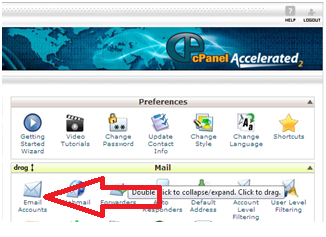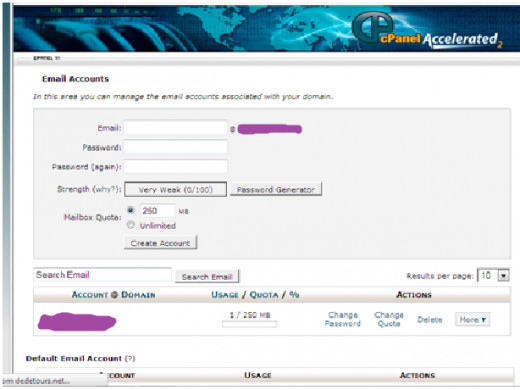How to create email accounts on your domain name

How many email accounts can I create on my domain? This is the question that you probably never asked your web host when you were registering your domain- and you should have. In an ideal case, you should be allowed to create as many email accounts as possible. However, there are instances when you may be allowed only a predefined number of email accounts. Some web hosting companies even provide email hosting solutions. This is for the sake of their clients who are not interested in a website but they still want email accounts.
What is wrong with the free email accounts?
By free emails I mean yahoo, Gmail etc. There is nothing wrong with them. However, if you have registered a domain name, it will be a good idea to create email accounts associated with your domain name- something like yourname@yourdomain.com. These are often referred to as corporate emails. There are a number of advantages of doing that. First and foremost, a corporate email enhances your image. It sends a message to your recipient that you are serious about your business. Secondly, it helps to build your brand. The whole idea of having a domain name is to transform it into a strong brand in your particular niche. The more your email circulates around, the more people get familiar with it and the stronger your online brand gets.
Thirdly, a corporate email helps you to market your domain. Whenever someone sees your email, he or she will instantly know the domain name since it is the last part of the email address. In most cases, the recipient will feel the urge to visit the domain name just out of curiosity. Now all you need is a string landing page and you might just have gotten yourself a new client. Although this may be different in your country, there are some countries that will not consider awarding tenders to businesses that are using yahoo or Gmail accounts. They prefer dealing with companies that are “serious enough” to get corporate emails. And finally, a corporate email account will look absolutely great on your business card!

So how do you create email accounts on your domain?
Am glad you asked. The first step is to login to cPanel. Of course am assuming your webhost provides cPanel access. Am also assuming that your webhost supports cPanel. If you are not sure how to login, read my step to step guide on how to login to cPanel. If you have a problem with your cPanel password, read my step by step guide on how to retrieve your cPanel password. Once you have logged in to cPanel, look for the section that is headed MAIL. Under it, there should be an icon labeled email accounts (see image on right).

Once you click on the email accounts icon, it will take you to another window where you can now create email accounts. Just enter the username you want and the password. Remember to use a strong password to avoid losing it to hackers. CPanel will automatically analyze the password you select and notify on how strong it is. You can also impose space limits on the accounts you create. These are referred to as quotas. This is especially helpful if you anticipate very many emails and you want to manage your space. You can always review the quotas set upwards or downwards at a later date. There you have it! Now you know how to create an email account on your domain name








